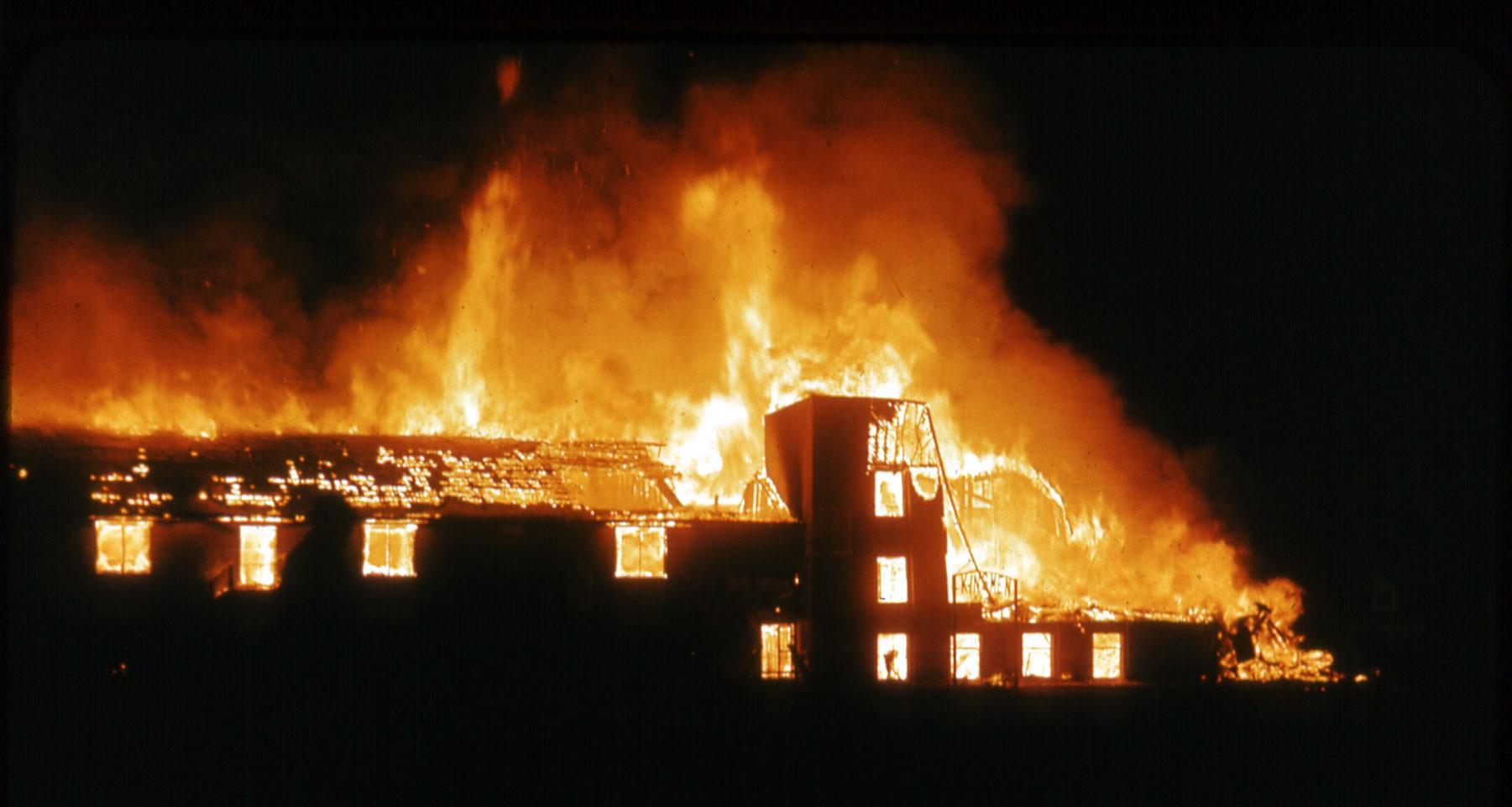The sheathing systems have been scientifically proven in terms of fire resistance.
With the cooperation of the ministry of environment and urbanisation and Dr. Robert-Murjahn Institut GmbH (RMI - Turkey), The “Full Scale" fire tests, which aim to measure the fire performance of external thermal insulation systems, were performed for the first time in our country.
Mr. Selami Merdan, the general manager of occupational services of the ministry of environment and urbanisation and; representatives, academics, and sectoral representatives participated in the tests carried out in Kayseri İncesu Organized Instrial Zone and; there, The resistance of the external thermal insulation systems, which is widely used in our country, to fire has been tested for the first time using real building-scale scientific methods.
What is fire resistance? Why are the real scale fire tests important?
Materials used in buildings should, of course, be a slowing, retarding or inhibiting role in a fire, rather than accelerating the progress of the fire. There are materials and application techniques to prevent the progress of fire between the parts of the building. However, every technique or material used has a certain additional cost, as well as there are disadvantages in terms of the life, strength or safety of the building. For this reason, it is necessary to determine the applications that will be technically and economically optimum instead of the applications that keep the buildings' safety maximum against fire. To determine the optimum materials and application techniques, the fire tests must be realistic, and the materials should be evaluated correctly. Although the standards in force in our country are not enough in this sense, accurate evaluations can be made by using the real building scale fire tests which are widely used in many European countries and the most optimum materials and application techniques can be determined.
As a first: Cooperation of Public and Private Sector
With the cooperation of the ministry of environment and urbanisation and Dr. Robert-Murjahn Institut GmbH (RMI - Turkey), Fire tests are studies to identify correct materials and application techniques with scientific methods with the cooperation of public and private sectors and it’s the first of its kind in Turkey. To take the right steps in the regulations that it is responsible for, the Ministry took the scientific tests as a reference and took part in the tests to evaluate the results correctly. This cooperation is an indicator of the rigorous work of the Ministry and its belief in scientific results.
In the tests, the reaction of various types of exterior thermal insulation (sheathing) systems to the fire has been determined. Mr. Selami Merin, the general manager of occupational services said “Here, we have tested the reliability of the facade systems especially for energy efficient, sustainable, safe buildings.” With the data we have obtained as a result of these tests we will evaluate the laws, regulations and legislation that we will prepare.” He also stated that they observed that the exterior facade systems applied in different combinations did not perform surface fire propagation and did not contribute to the spread of fire.
Consumers Must Rely on Scientific Results, Not Speculation
Mr. Güneş İnan, The Manager of Dr. Robert-Murjahn Institut GmbH (RMI - Turkey), said “The resistance of the sheathing systems against fire must not be based solely on the thermal insulation material used. The tests show that fire risks are predominantly determined by the mortar embedded in the plaster which forms the outermost layer of the exterior facade and the reinforcement plaster. These results reveal that the importance of respecting scientific results, not speculation.
Applicable Materials, Good Practice
Mr. Güneş İnan said “these tests refer us that applicable materials and good practices can provide security against fire Test results showed that the sheathing systems can be safely used in all buildings without height limit or building type restriction. In recent years, very important steps have been taken in the implementation standards and certification of professional qualifications. However, not only government but also private sector representatives must take responsibility in order to widespread this kind of things.
The support provided for the occupational certification in the new Occupational Safety Package through professional competency board by Prime Minister Ahmet Davutoğluis very meaningful. The fact that the sheathing applications are carried out by certified practitioners increases the quality of the application as well as the personal awareness of compliance through the rule-based occupational safety application. In this context, we must insist on the application carried out with the good materials by certified practitioners. We must not allow decreasing correct applications’ values due to untrustworthy practices or non-scientific knowledge.
As an example: England
While answering the question on requirement of full-scale tests, Mr. Güneş İnan said “The standards in our country and in Europe are not sufficient to determine the actual fire resistance of sheathing systems. In many countries such as UK, Germany and Austria, such large-scale tests have been conducted for many years. We believe that the sheathing systems in our country should be subjected to these tests and by the regulations prepared by the Ministry, the use of the systems which have succeeded should be allowed in these tests especially in buildings with high fire risk. In accordance with the regulations in the UK on construction, only this kind of sheathing systems are allowed to be applied to the buildings that are higher than 18 meters. Similar regulations based on scientific methods and tests should also be used in Turkey.”
We would like to be who is a leader not a successor!
Sheathing systems sector in Turkey has increased its capacity for 10 years and now it is one of the biggest one in Europe. In line with the European Association For ETICS (EAE)’s data, 63 million m2 sheathing application was made in Turkey in 2013; however, there were only 40-million-m2 area was coated in Poland and 36-million-m2 in Germany. Mr. Güneş İnan made a speech on the subject and said, “The size reached by the sheathing market is an indication of the importance given to energy efficiency in our country.” This achievement is really satisfying. Thanks to the capacity of the market, our country has become an example for the European and Middle Eastern countries. This is heart-warming. We do not want to confine ourselves with it. We would like to carry on it successfully as a leader and must gain new leaderships in technical fields. We would like to be who is a leader not a successor in every fields. Also in rules and regulations.
Exterior coated methods have important roles for achieving the energy efficiency targets of our country and exterior thermal insulation systems provide many benefits to end users in addition to its economic benefits.
Exterior thermal insulation systems tested against fire have come to the fore thanks to its benefits and advantageous.
These are as mentioned below:
Thermal insulation reduces heat loss and increase energy saving.
It saves on appr. 50% fuel and pays for itself in 2 to 5 years.
It has not only the edge over winter but also summer.
Temperature distribution can be balanced.
So, it provides a healthy and comfortable environment.
It prevents the formation of black stain and blistering of paint or plaster because of perspiration on the internal surfaces.
It ensures durability of buildings and extends their life time.
It reduces the repair costs of the building.
It makes the external facade of the building beautiful.
By reducing the amount of carbon dioxide oscillating to the atmosphere, it contributes to reducing air pollution and protecting the environment.




